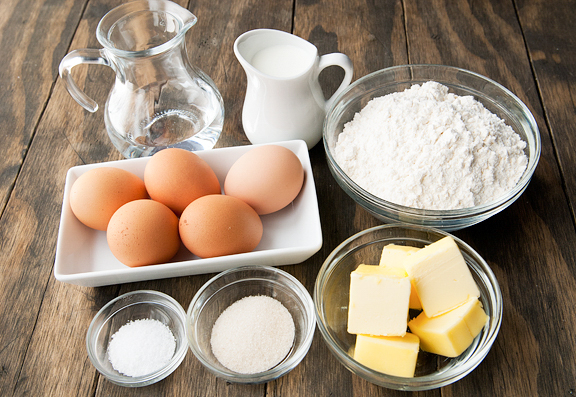
c/o onedio.com
As we progress through our short time here at Wesleyan, we are expected to start becoming “responsible” people—people who can, for instance, cook and clean for themselves, people who don’t call home anytime they have to boil some pasta. Being responsible is hard. I’m not very good at it in most cases. I have, however, picked up some tips and tricks as far as cooking goes, mostly through experience. One of the biggest things I’ve learned has to do with stocking and organizing the kitchen—being ready for those late-night snack situations or just throwing together a quick and sort-of-healthy dinner even when I’m in a rush. As food editor, I’ve taken it upon myself to share that knowledge with you, regardless of whether my advice has been solicited or not. Enjoy!
In an effort to keep this a little bit more organized, I’ll divide up the essentials by category. Keep in mind that these are just the basics, the little things to keep your appetite sated even when you don’t have the energy to schlep to Weshop. The goal is to always have enough on hand so you can throw together a quick lunch or dinner without too much effort.
The first thing you’ll need to worry about is the hardware—that is, the materials to have around to prepare you for any food-related situation. I recommend a small saucepan and larger skillet to start, along with a pot big enough to boil water. These are the only three types of pots and pans that I own right now, and they’ve served me well no matter the culinary challenge. Invest in a good knife for cutting vegetables and meat, as well as a pasta strainer, wooden spoons, and a spatula. Something that a lot of people might not think of for this category are a bunch of those hard plastic Tupperware containers. These are excellent for keeping leftovers, cooking vegetables and storing them for multiple meals throughout the week, or, in a pinch, shamelessly stealing extra food from Usdan to keep you going through finals. Having a fridge filled with two or three of these can make a huge difference in how satisfying your meals end up.
Next comes what I like to call your food building blocks—the bases to your tasty creations. Some of these are pretty simple: olive oil, butter, dry pasta. Flour and sugar have come in handy, whether it’s for simple baking or sweetening up pasta sauce. Flour is especially important—combine it with a little water, and you have a great way to thicken sauces, giving you a lot of creative room to work with as far as your pasta dishes go. I’m not sure if they count as building blocks, but things like eggs, a loaf of bread, and cheese can make for a good breakfast or lunch (egg sandwich, grilled cheese) without having to go out and buy something similar from Red and Black or ’Swings.
Now on to the good stuff. At this point, we are more or less fully prepared to start cooking. We just need the right ingredients. A lot of this is dependent on your personal taste, but there are some things that are universal. For example, it’s always good to keep some of your favorite fresh vegetables on hand, like onions, mushrooms, and spinach. It makes it easy to toss together a salad, or just add some to the side of your breakfast. I would also recommend keeping some frozen veggies around, just so that you have something to fall back on in a scenario where you can’t get easy access to fresh produce (snow, sleet, hail, laziness, or what have you). I would also recommend some meat that you can freeze, for all you Carnivorous Cardinals out there. Just make sure you have some way to get your protein, be it chicken or chickpeas.
Just because we are pressed for time in our cooking does not mean that we have to resign ourselves to bland and boring dishes. Be prepared to spice things up! With spices! It’s always a good idea to have a couple of basic spices on hand—salt and pepper, of course, but also minced garlic, basil, and oregano. I’ve had some good experiences with some more obscure stuff too. Keeping a jar of salsa readily available is a super easy way to add some flavor to any meal. I’ve put salsa on grilled cheese, on eggs, and drizzled it over some roasted vegetables wrapped in a tortilla. It’s cheating, yes, but we are looking for simplicity here, not flashiness. If you want to impress your friends, you’ll need to put a little more effort in. Keeping a few light salad dressings on hand, like a simple balsamic vinaigrette, can add a lot of flavor to your meal—also consider sauteéing some veggies in balsamic for a flavorful and satisfying meal.
That about does it. This is just a short list, but it’s a good place to start for those of us with limited experience running our own kitchen. As with all cooking-related activities, the best thing to do is to get out there (or in there, I guess, since it’s a kitchen) and figure out what works best for you. As always, good luck, cook safe, and stay full.
Spencer Arnold can be reached at sjarnold@wesleyan.edu.
Comments are closed